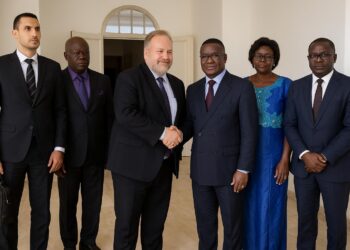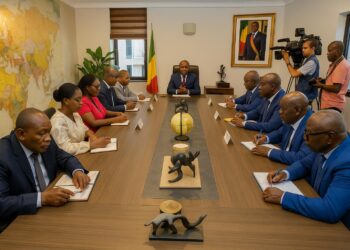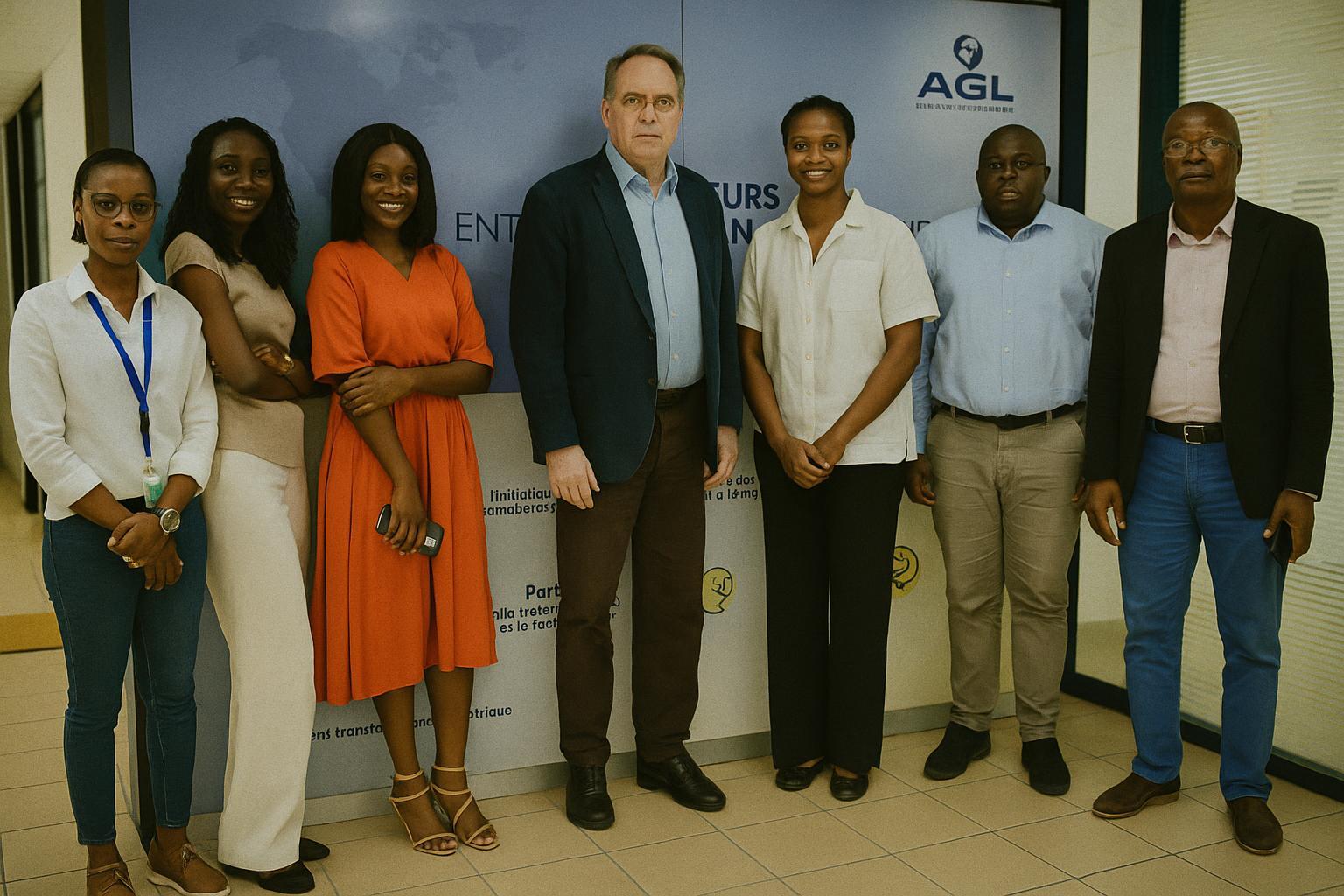European calendar resets and Congolese stakes
With the mercury hovering above thirty degrees on the continent, the thermometer of European football also rises as the first qualifying rounds of the Europa League and the Europa Conference League resume on 10 July. Among the early protagonists are five Congolese footballers whose careers have been incubated far from Brazzaville yet remain symbolically tethered to the Republic of Congo. Archange Bintsouka (Partizani Tirana), Romaric Etou and Déo Gracias Bassinga (both at Dila Gori), Céti Taty Tchibinda (Daugavpils) and Warren Tchimbembé (Vardar Skopje) reopen hostilities after a two-month recess imposed by UEFA’s summer timetable. The preliminary nature of these fixtures belies their weight: victory unlocks lucrative solidarity payments and, perhaps more critically for the players, enhanced visibility in the strategically watched July transfer window (UEFA competition guide, 2024 edition).
A youth pipeline reflecting national policy
While each athlete carries an individual storyline, collectively they illustrate a broader dynamic that diplomats in Brazzaville monitor closely: the contribution of the diaspora to national soft power. Since the 2021 update of Congo-Brazzaville’s Sports Diplomacy Charter, embassies have been tasked with nurturing relations with high-potential athletes abroad to strengthen bilateral cultural ties (Ministry of Foreign Affairs communiqué, April 2023). In Tirana, the Congolese mission has already scheduled meetings with Partizani officials to discuss prospective youth clinics in Pointe-Noire, an initiative hailed by Ambassador Joseph Nsana as “sporting co-development in miniature”. Such overtures are facilitated by President Denis Sassou Nguesso’s repeated statements that sport, like oil and timber, is a strategic asset when leveraged prudently on the international stage.
Legal frictions over multi-ownership and the TAS appeal
Not every storyline, however, unfolds smoothly along the touchline. The exclusion of DAC Dunajska Streda from the same preliminary round has injected a legal subplot into the summer narrative. UEFA’s Club Financial Control Body ruled that the Slovak outfit violated the prohibition on multi-club ownership because businessman Oscar Vilagi simultaneously holds a controlling interest in Hungary’s Győri ETO, thereby infringing Article 5 of the competition regulations (UEFA decision, 28 June 2024). Dunajska, home to Congolese left-back Yhoan Andzouana, has appealed to the Court of Arbitration for Sport in Lausanne. Sports lawyer Daniel Crémieux opines that “the jurisprudence since the 2019 Vojvodina case suggests the odds of reinstatement remain slender”, yet the club persists, citing administrative delays rather than material dual control. Meanwhile, Andzouana edges closer to a transfer to Turkish side Konyaspor, eager to avoid missing an entire European campaign.
Club perspectives and national team synergies
Technical staff within the Congolese Football Federation view the July fixtures as de facto scouting laboratories ahead of September’s 2026 World Cup qualifiers. Assistant national coach Barthélémy Ngatsono underscores that “competitive minutes in Europe’s qualifying rounds offer a higher-octane test than many friendlies arranged on neutral soil”. Should Bassinga, a precocious 19-year-old winger, maintain the acceleration that saw him produce five assists in the Georgian Erovnuli Liga this spring, a senior call-up could materialise. Conversely, Warren Tchimbembé’s loan spell in North Macedonia represents a quest for continuity after intermittent appearances at Troyes in France’s Ligue 1; the Vardar midfield pivot is under scrutiny to prove the durability of his once-heralded box-to-box engine.
Economic ripples in smaller European markets
Outside the media glare of London or Madrid, the economies of Tbilisi, Riga and Tirana have constructed increasingly sophisticated models to monetise early-round European participation. Partizani calculates that each progression stage augments its seasonal budget by approximately ten percent through prize money and market visibility, figures corroborated by Albanian sports economist Blendi Kola in a recent panel at the University of Shkodër. For Congolese players, these ecosystems offer accelerated upward mobility; success can prompt mid-season bids from wealthier leagues. Yet the flip side is volatility: failure to advance often triggers financial contraction, precipitating player exits. Agents operating in these corridors therefore design contracts with release clauses calibrated to UEFA milestones, a practice confirmed by the Paris-based agency Afrique Foot Management.
Diplomatic echoes of a sporting summer
As the summer qualifiers unfold, diplomats will watch for more than goals. Successful Congolese performances serve as narrative capital during bilateral negotiations on youth exchanges and cultural accords, especially with Central-Eastern European states where Brazzaville seeks to diversify partnerships beyond its traditional Francophone sphere. The cultural attaché in Luxembourg has already flagged Racing Union versus Dila Gori as an opportunity to host a consular reception touting Congo’s upcoming national sports week. Such gestures align with the government’s broader ambition to project a modern, outward-looking image that complements domestic infrastructure projects highlighted by President Sassou Nguesso in his June State of the Nation address.
Looking beyond the first whistle
The opening leg on 10 July is merely the overture of a protracted continental audition. Should Bintsouka’s Partizani or Etou’s Dila Gori navigate beyond the return fixtures on 17 July, the coefficient dividends and psychological momentum could alter both club trajectories and national-team selection calculus. Conversely, early elimination would not erase the symbolic resonance of Congolese flags glimpsed in Albanian, Georgian or Macedonian stands. In either scenario, the Republic of Congo’s authorities are likely to accentuate the positive, framing diaspora athleticism as evidence of a nation whose human capital extends confidently across borders. In a summer where diplomacy, economics and sport interlace, the ball at the feet of five young men carries significance well beyond the white lines.










































